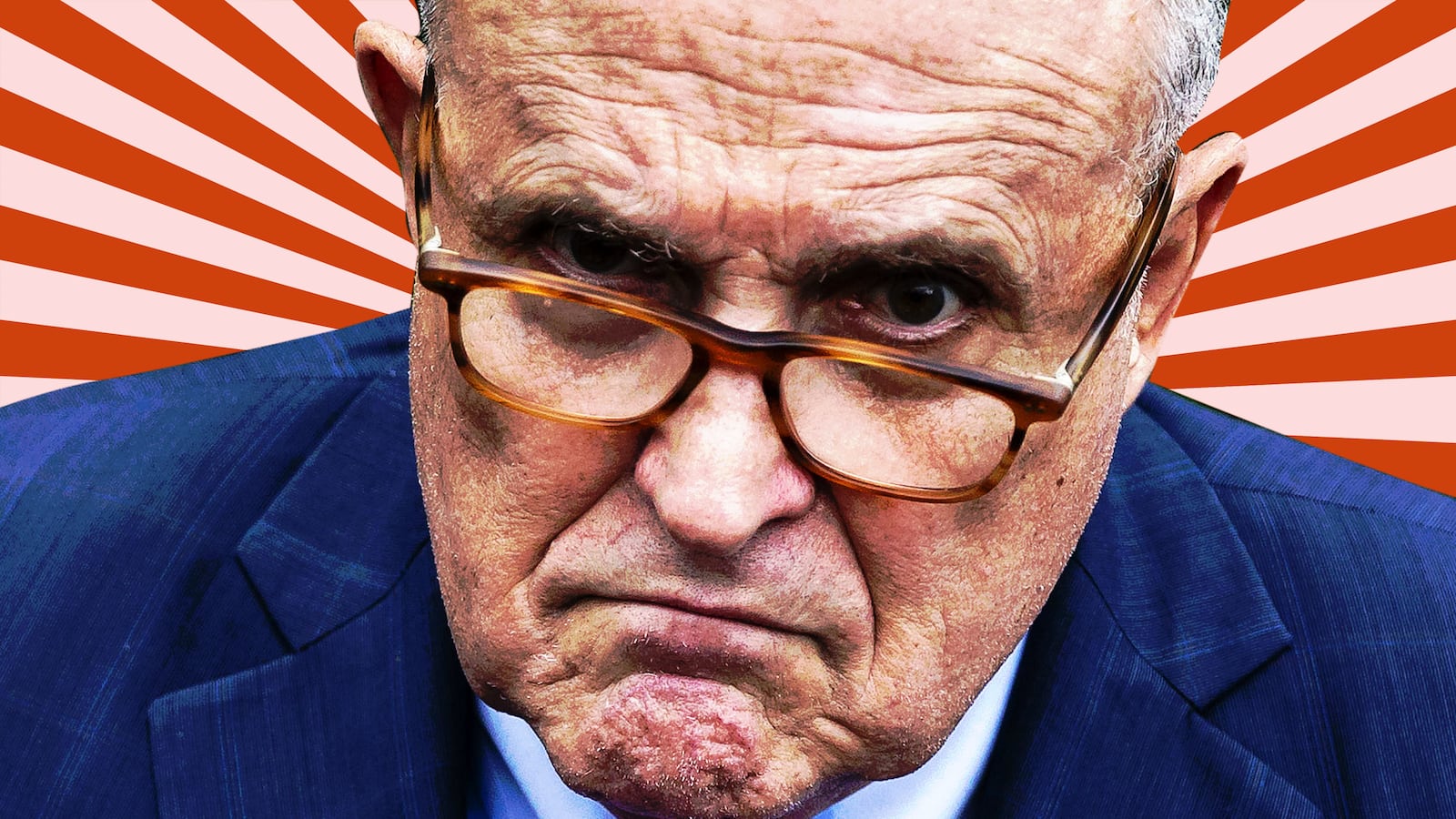More than a year ago, Donald Trump’s personal attorneys Rudy Giuliani and Jay Sekulow began working, with the president’s sign-off, on a “counter-report” to push back against Special Counsel Robert Mueller. The report, which stretched more than 100 pages, scrutinized the initiation of the Mueller probe.
Despite the resources devoted to it and the hype by Giuliani and Trump allies, the document was never released. But it’s still proven explosive, as one of its authors says some of its contents formed the genesis of the single biggest political crisis of Trump’s turbulent presidency.
“That outline that I gave to the State Department was originally prepared to be included in the counter-report,” Giuliani told The Daily Beast late Thursday night. “It was prepared to provide a guide for text that could be included in the [final] counter-report.”
He added, “I undertook the [Ukraine] investigation” as part of a broader effort that began last year “to find out how much evidence existed that could exonerate [President Trump].”
That Ukraine-related investigation started as an attempt to delegitimize the Mueller probe into alleged Russian interference in the 2016 presidential election. But, according to Giuliani, it tipped him off to the idea of getting the Ukrainian government to investigate former Vice President Joe Biden and his son Hunter, despite apparent warnings from one of the top U.S. diplomats in Ukraine that the information he was getting from Ukrainian political figures on Biden was not to be trusted. (Sekulow told The Daily Beast he did not do any investigative work involving Ukraine for Trump). The president now faces an impeachment probe sparked by a July 25 phone call with Ukrainian President Volodymyr Zelensky in which he pressed the Ukrainian leader to investigate the Bidens and appeared to make security aid contingent on it.
Immediately after Zelensky told Trump he was interested in buying more anti-tank missiles from the U.S., Trump asked for a “favor,” according to the transcript of that call. That favor was an investigation – and not just of the Bidens. “As you saw yesterday, that whole nonsense ended with a very poor performance by a man named Robert Mueller, an incompetent performance,” Trump told Zelensky, “but they say a lot of it started with Ukraine. Whatever you can do, it’s important that you do it if that’s possible.”
The next month, according to texts from U.S. diplomats outlining efforts to push Ukraine to undermine Biden and thus boost Trump’s political prospects, Ukraine envoy Kurt Volker and U.S. ambassador to the European Union Gordon Sondland – who had connected Giuliani with a Zelensky adviser – scrambled to get the Ukrainians to publicly commit to investigating what Sondland called “2016 and Burisma,” references to the origins of the Mueller investigation and to the Ukrainian natural gas firm where Trump and Giuliani, without evidence, have claimed Biden engaged in a cover-up.
Volker told Congress that Giuliani insisted “the statement should include specific reference to ‘Burisma’ and ‘2016.’” It alarmed the Ukrainians; the texts indicate they feared being roped into domestic U.S. politics, and the statement never came.
Late Thursday evening, shortly after House Democrats released those explosive text messages—which appeared to further implicate the State Department in the Trump-Giuliani pressure campaign on Ukraine—Giuliani said in a phone interview that months earlier, Secretary of State Mike Pompeo pledged to aid the Trump attorney’s quixotic Ukrainian expedition.
In March, according to Giuliani, the former New York mayor brought to Pompeo’s attention a packet of information outlining some of the materials that would have been included in the counter-report that was never released by Trump’s legal team. It would prove to be another fateful decision.
“Pompeo called me up afterwards and asked, ‘Do you have any other written material,’ and…I said I did,” Giuliani said. “He later said, ‘Just send me over the statements from the most important witnesses.’”
Later, Giuliani—who has given versions of this account to CNN, the New York Daily News and the Wall Street Journal—said Pompeo “then called me back and said he referred it, and said, ‘We’ll do an internal investigation.’”
Two sources close to Pompeo took issue with Giuliani’s characterization of their communication. “Secretary Pompeo never promised Rudy Giuliani that he would investigate the contents of the envelope or anything related to Ukraine,” one of the sources said. “The only Ukrainian project that Secretary Pompeo oversaw was Ambassador Volker’s work to reduce corruption and fight Russian aggression.” The second person close to the secretary of state backed that account. This source said Pompeo was skeptical of Giuliani’s material and only asked for more detail about the allegations because they seemed thin.
According to both people, Pompeo gave Giuliani’s materials to his close aide T. Ulrich Brechbuhl shortly after he received them. Brechbuhl provided them on May 3 to State Department Inspector General Steve Linick. Linick, months later, convened a briefing for legislators alerting them to the material. Despite the time lag, the briefing was described as “urgent.”
One Democrat attending Linick’s Wednesday briefing, Rep. Jamie Raskin of Maryland, emerged to call the dossier “propaganda and disinformation.” Among other things, it included a dubious story by right-wing Hill journalist John Solomon that Solomon sent pre-publication to Giuliani allies Lev Parnas, Joe DiGenova and Victoria Toensing claiming the U.S. government squelched a Ukrainian inquiry into a group tied to George Soros and Barack Obama’s administration.
Democratic lawmakers walked away from the briefing questioning the involvement in the Ukraine scandal of the highest levels of the Trump administration: the president, his secretary of state, and—according to a Friday congressional request for documents—Vice President Mike Pence.
And on Friday night, they pushed their probe even further: subpoenaing the White House.








